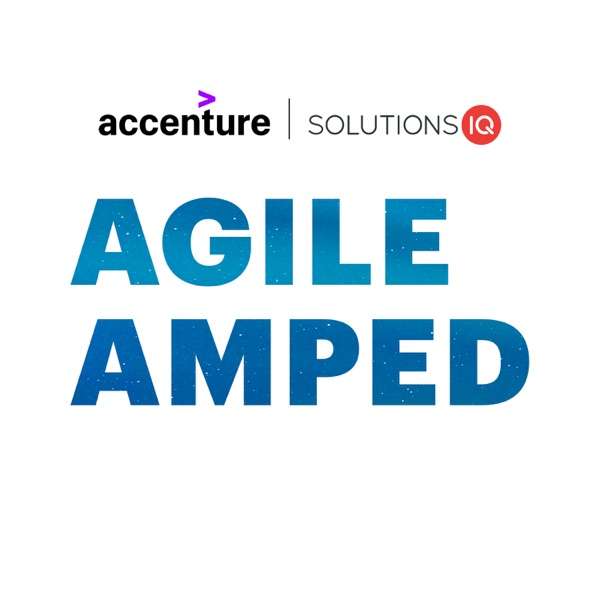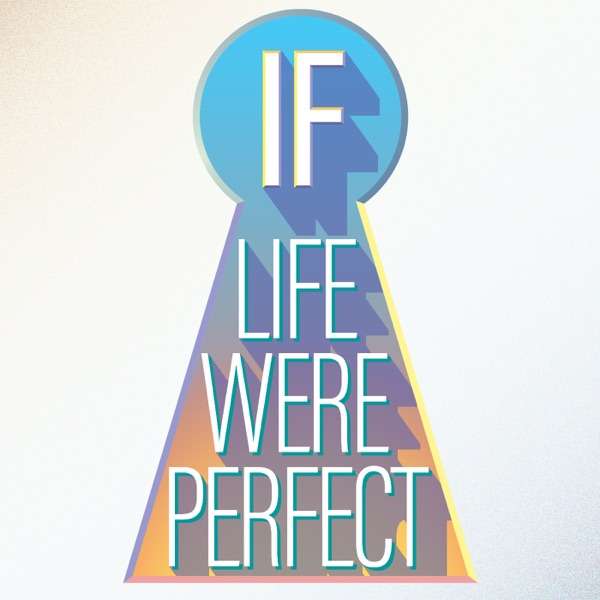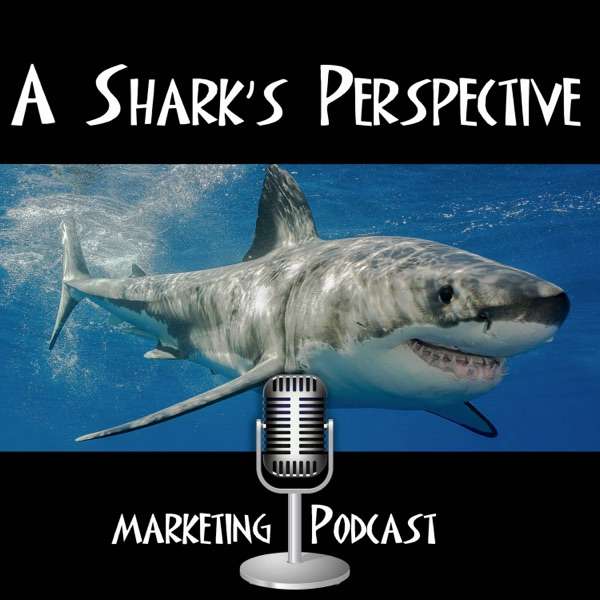Scott Krone Mr. Krone is a Chicago native whose career in architecture began in 1991 by pursuing his Masters of Architecture from the Illinois Institute of Technology. While obtaining his degree, he also worked as a Project Manager for Optima, Inc. During his time at Optima, Krone’s responsibilities included such notable projects as the 400 unit Cormandel in Deerfield, IL, the 40 unit HedgeRow in Winnetka, IL, and the 51 unit Optima Center Wilmette in Wilmette, IL.
In 2012, Krone founded Coda Management Group – a firm who specializes in managing real estate assets. Since its inception, Coda has manages a wide range of real estate including single and multi-family homes, retail, commercial warehouse and self-storage and multi-use flex athletic spaces. Currently, the platform of investments is in excess of $55 million.
In 1998, Krone founded Coda, an award winning Design + Build | Sustainability | Consulting firm. Since its inception, Coda has won numerous design/build awards including the international Green GOOD Design Award in 2010, Best of Houzz 2014 and 2015, and Design Evanston Award. Their work has been featured in notable publications as Dream Homes - Chicago, Midwest Luxury Homes, Crate & Barrel 2010 Best Catalogs, NBC TV Show Taste, and national ACE Hardware Commercials.
In addition, Krone has authored High Performance Homes – Navigating the Green Road to Your Dream Home, a book for homeowner’s seeking to incorporate green technology into their home.
Krone resides in Wilmette, IL, with his wife and three children.
hank you so much for listening! WE ARE SO GRATEFUL!!!!
Our Sponsor:
Multifamily Foundation
If you are serious about learning how to buy apartment buildings then don’t wait, go to www.multifamilyfoundation.com and let us help you build your foundation.
Investing for Lifestyle and Legacy: https://www.yarusiholdings.com/
Our ENTIRE Podcast, Books and Health Suggestions: https://www.amazon.com/shop/yarusiholdings
Subscribe To Us On YouTube: https://www.youtube.com/channel/UC1SuXB01d14DC8ZnEWpRQdQ?sub_confi rmation=1
Subscribe To Us on #Libsyn: http://multifamilyfoundation.libsyn.com/website
Subscribe To Us on iTunes: https://podcasts.apple.com/us/podcast/the-multifamily-foundation/id1484177595
Transcription:
Hello, again, welcome back to the Jason and Pili project. Super excited for today's show. Really going to talk about some topics that are really viable to what's actually happened today. A space that's super great for everything that's happening during Covid. If you listened to that time, when you have Scotty Krone on the show.
Hey Scott, how you doing? I'm doing well. Thanks for having us. I appreciate the opportunity. Well, thank you so much for coming on the show and a little bit more about Scott. He's. The founder of Coda Management Group, teamed up with investors to purchase strategically located undervalued warehouse space and convert it into climate controlled self storage facilities that are managed by a top three operator. So a little bit more, he's done 47 syndications over 400,000 square feet of property, 2,759 storage units currently under management and 25 years to develop and design build experience. So Scott, thanks so much for coming on. I see that you are actually converting warehouse space into climate control itself storage. Was that intended or was there a certain time when you were doing these syndications and it looks like you were in residential and a couple other points where this just fell into your lap and you, and you did it without knowing really the after effect and all of a sudden it became your business plan.
Uh, it's something that's certainly developed. I began in multifamily and that's predominantly where the syndication began when I was working for other people. And, um, you know, the first project, which was my master's was a 400 unit, all Thai multi D uh, family development. So we had condominiums, we had townhomes, we had single family homes and it was on 50 acres and it was a, it was a ground up development. And I worked for them for six years and, you know, each, each and every one that we did was along those lines. And so when I started Coda, we began in single family and then we got into multifamily, got into mixed use. Um, we were also have done five churches we've, um, just on a lot of different things. And then the crash came in 2008 and 2009. And that whole market on the residential side completely dried up and everyone was going into apartments.
And because that's the only thing that banks were lending out at that point in time, whereas we're apartments, we did buy some apartments and, but there was a tremendous cap compression and it was very competitive. And so we had one client who wanted us to find him a distressed self storage facility. And I couldn't find it. I was looking all over and nothing was quote unquote distressed. And this is like in the heart of the, the, you know, the, the previous recession. And there was absolutely nothing that was truly fit the qualifications and distress. And I was like, this is an amazing product. And that's where I began learning about it. And we actually had a warehouse where we were going to convert it into another use for our client. And we officially got the nonverbal verbal approval from a mayor. And then three months later she had a change of heart.
And, um, so now we were hard on a contract, had this warehouse and I called up my client and said, you know, if you really want to get into self storage and make money development is the way to do it rather than trying to retrade on, you know, moving from a nine cap to an eight and a half cap. You're not going to see a lot of appreciation there. If I said, you know, we have this warehouse, let us know if you think it's a good location. If it fits the economics of what you're trying to do. And they came and looked at it, they said it meets all the things that we need. We need it to be, but we don't have anybody to develop it for us. So we did that, and that was our, that's how we got into self storage.
Wow. So the lots that we could unravel there, and if you look at that today, what makes the conversion process that much more buyable than the ground up in terms of being able to maximize space? Is there a certain size of product that you have to be into to make this make sense? Is there a certain number of units that you have to get out of? It is there, and is it location savvy compared to, you know, being close to the city or being out in the suburbs that you're trying to focus on?
Well, it's very location specific. It's within a three mile radius. That's, that's what we're looking for. So when we're converting, we're looking at class a, so within class a, um, that is the type of thing that is conducive to more of an urban setting. Um, one, because that's, you have density too, you have a larger building. Um, I haven't seen any conversions in a rural or suburban market for a class, a type facility. So it's predominantly only in urban areas that we're doing this. So we're, we're focusing on the Midwest. So we have Wisconsin, Illinois, um, Ohio, and we just went to contract on one in Kentucky. So that's the market that we're focusing on. And because there's, there's unmet demand in those markets, that's why we're going after these products, after these buildings. And the reason why we're doing conversions is one we're buying these buildings somewhere between like 11 and $13 a square foot.
So the replacement costs, I can't buy the property and build these buildings for that price. Um, the other thing is they, the buildings that we have been buying lend themselves well to the layout of self storage. So they're predominantly rectangular in nature, a very common column line. Um, the one that we bought in Dayton did not lend itself to multifamily, which is why it was not converted. If the building was sitting vacant, we came in, we had the zoning, as of right, we had an existing building. And so to buy the land, have the building and have the zoning, um, for, you know, these for $11 a square foot, it's a no brainer for us at that point in time.
Yeah, absolutely. And so is there a size of building that you're always looking for, that you won't look for something smaller than X number of square feet or a certain number of units to get out of the space?
Yeah, we're, we're looking between like, you know, 8,200 and 1,000 and 20,000 square feet. The building that we bought, we haven't bought yet. So the building that we're under contract for in Lowville is actually close to 140,000 square feet. The market does not demand 140,000 square feet of self storage, but there's existing tenants. And so we have a rent roll already. So we're going to have a combination of flex warehouse space and then also self storage. And so we're going to be converting a portion of the building into self storage and then
Maintaining the existing tenants. Okay. What are some of the metrics that you're looking forward to, to show that the market is, um, not meeting demand?
Well, first we look at is the population growing or is it decreasing what is happening with it? So in each of the buildings that we bought, so the last three Toledo date, and now the one we're under contract for it in Louisville, we're seeing a tremendous amount of development right around what's going on, so that that's always encouraging to us. So there's like 3,500 rental units coming online and local, right. Within two miles of our building. So for those of the site, I should say, so that's, that's exciting for us that we're seeing continued growth in there. The second thing that we're looking for is what is the market saturation? How much lockers per square foot per capita is in the marketplace in context of the overall. And then we look at, is there unmet demand? And so in each of those cases, you know, the PR our competition is like 90% leased up.
We're well below the saturation level for our product type. And then we look at pricing and, you know, are they getting good, strong pricing and what's been happening with the pricing. So that's one of the things that we've really like about self-storage compared to when I was in multifamily, when I was working for a top 20 developer in the country, you know, there wasn't feasibility studies out there. It was just like, if you build it, they will come. Right. And, you know, we're doing a lot more due diligence now than what I was doing when I first started. I mean, we were doing, it was a hundred million dollar project, you know, it was like three or 400 units. I mean, that's a tremendous amount of change to a community, right. And we didn't have a feasibility study to say like, is there going to be a demand for 400 people to come in and buy these condominiums anywhere from 100,000 to half a million dollars? Wow. You know, and so, you know, for, for us, we have a market study that says, is someone going to rent a locker for a hundred dollars? Or, you know, is it, are they going to rent it for $25? So we know exactly what the market is going into the product.
So thinking about what's happened today with COVID, you're where you're going to see a lot of space open up within, you know, retail and some of these other places to have, unfortunately, just aren't going to have the power to come back, potentially, maybe warehouse stay strong. You know, we started seeing a lot of, uh, shipping, maybe some, some, some of business come back, you know, from overseas that, that start being made here for certain reasons. Do you, are you, is this, now, is this making you bullish again on the industry? Cause there's going to be more opportunities that you could find space in predominantly maybe areas that were oversaturated with retail and office space that maybe you can use for this conversion process.
Well, there's two points to that. The first is, you know, we've studied the last four recessions and based upon the gray hair that I have, you know, that I've been through a couple of these recessions before. So, um, maybe that's wisdom, maybe it's, I don't know, old age, I'm like, my kids tend to say it's moral day than wisdom, but yeah. Yeah. We've, we've gone back and looked at the recessions in the past and, and each of the recession's self storage has either held or gone down like one or 2% and then rebounded very quickly. So they're not recessionary proof, but they're certainly recessionary resistant. So they they're, they're holding their market. In fact, the greatest, the lowest cap compression that we saw was when extra space bought up a portfolio of a billion dollars and it was at a four and a half cap, and that was at the last recession.
So they do well in a downturn, which is why we've gotten, we were bullish on self storage before the recession because of the fact of how they resist the, the re they're not as, you know, they don't vary as much within the recessionary market as other products. Um, people would argue that multifamily that they're expecting to surge within multifamily. I don't know. It's all gonna depend upon what the lending capacity is going to be. Certainly hospitality, retail. It's no, it's a no brainer. These things I've been hit and hit hard. So there is going to be a change. What we did see in the last recession is to the communities that needed something to be built, were willing to rezone the communities that we're not, we're going to hold fast to the fact that they weren't going to change the zoning. So there could be a big box that would be prime for self storage, but if we can't get the zoning, then it's not, it's not going to happen. And that's where you will see the pressure, you know, because obviously the is losing tax dollars tax revenue, but they want the sales tax in self storage or not, there's very little sales tax. So they want to keep those products on there. And who knows what if communities are gonna allow it to be rezoned to self storage.
Interesting. Yeah, that's actually a great point. Right? So if the community is looking to find out where to come back, they're going to push out across cause really the tax dollars that makes up what's happening in the, in the, in the area. Is there a reason that you focus a lot on middle, middle America States and you know, w we invest in so many States, you know, we're in Louisville is in terms of, um, focusing on some of the other States that might have a, um, a bigger flight to them, like the, the Florida's or the North Carolina or South Carolina. Is there a reason that you, you stay location specific in the States that around you,
There is. I mean, it's, it's, it's based on saturation. We've had plenty of people call us up and say, Hey, I want to do self storage in my town. There's no self storage. And I'll ask them where they live and I type it in, and there's like 18 facilities, like within two miles of where they live and, you know, they're, they're oblivious to it, right? So along the East coast, the South, the West coast, the saturation is that it, you know, we're supply equals demand is typically around seven square feet per locker. And the salvage is actually nine because of the fact that there's so much self storage and there's so much demand. So we have avoided those areas because the competition is incredible. But more importantly, if we can go into a market, you know, date and check the one, we just, we just opened up in Chicago when we bought it, it was two.
So there's plenty of, there's plenty of demand that we can meet. Um, each of the ones that we bought Toledo, Dayton and Louisville have all been under four. So there'll be between two and three and a half. And so we know that there's, there's a lot of margin for us to meet in there. Wow. Interesting. When you're doing your build out, do you look at a certain per square foot number that you have to come in for your construction costs to make this, or is there, is there a range or how do you look at it from that site? And that has a lot to do with the condition of the building, and then we back into what we can pay for it. So the building in Lowville that we're under contract for, it is very aggressive pricing because of the fact we have to do so much for, to the building.
We're actually going to be spending a lot more per square foot on Louisville than the other buildings. Um, just because of the fact that we have mixed use and it is larger. So we, we always base the purchase price based upon what it's going to cost to get us to the place where we need to break even and make money. Was there a pinnacle point here? You talked a little bit about, you know, moving on from, multi-family just completely shutting off the point. Um, but was there a pinnacle moment or something that you, you talked about, the conversion that you had with, uh, the partner or the person who was looking for space, um, was there a moment that you said I will no longer do residential or any, any kind of play with multi-image strictly just going to go all in, uh, with self storage, there was, there was two points.
The first was when we sold our multifamily, you can accuse me of a lot of things, but, you know, being the smartest guy in the room is you're, you're not going to accuse me of that one. So, um, you know, I, but I do watch what's happening in the marketplace. And so when the, the crash came in the last crash, the last two crashes, Oh one and Oh eight and Oh nine, we weren't sitting on a lot of property because I stopped buying because I was listening. And I think that's the key thing within the marketplaces. I was listening and paying attention to what the market was saying. I wasn't trying to force the market. And so I stopped buying in Oh one, I stopped buying in Oh eight and I was, I was selling and, you know, I was being criticized by my competition for selling my properties too low, to undercut them.
I'm like, look, I'm in cash, I'm out. You know, I don't want to be holding it because I'm not comfortable with what's going on. So when I saw that, you know, the cap compression for our apartments was lower than what I expected. That's when I began selling my, my apartment. I'm like, I'm just out or done now, did I time it perfectly? I don't know. You know, perhaps it's gonna do a little bit better now, but I'm also out, you know, I don't have to worry about if I'm gonna make a half point or a point better or worse, you know, that's, that's my philosophy. So we're in real estate, everything's for sale at the right price. So if I, if I feel that the market's going to be turning, then I will liquidate the other indicator for us was we, we were doing a spec house in when, uh, in the North shore was not in one actor, but in the North shore of Chicago.
And we had originally projected it to be like 1,000,050. And this was, you know, right. You know, we were right around the election time and the, the market opened up and we weren't quite done, but in January, like three homes all sold for like over a million dollars comparable to us. And then the rest of the year, nothing sold the new construction. And this, this is a brand new house. We pick it up for two 35, you know, we thought this was this, not a home run, but you know, a triple double for sure. Good deal. And we, we sat on that for a year. We had to rent it out and then we then sold it at breakeven. So we cut the price by over 20% in order to sell this thing just to get out. And so that was the next thing is like, there were so much fluctuation in the single family market that was like, there's too much risk.
So when I, when I'm evaluating risk, those are the things I'm looking for is like, what's the volatility, you know, and so far it was the cap compression. And then the volatility within the single family that we're not investing in those things. But if people are asking us to build it and develop it for them, then we will certainly do that. I think there's, there's obviously there's no risk to us, but I think there's less risk to someone else because they're not paying the premium of buying something new from someone else as a finished product or working with us and getting that benefit of being the owner from the front end. So we have built new homes recently. We just finished another church, we're working with another. So we just finished a church last year. We're working with another church right now. And, uh, you know, we, we just finished a house. So people hire us to do those things. But from an investment point of view, our portfolio is strictly self storage. Yeah. I love that. And so from a self storage, um, aspect, when you're building out the property, is there any value as a, you always look to add that, you know, that maybe other operators are missing or other people leave out that you think is, is definitely a mistake and you put this in there because you know, it really takes your property to that next level. It's not that complex. You never
Know. Right. So it could be anything, you know, automation, the key. Yeah. I think right now I actually, you know, I think one thing I said to her today is like, you know, what makes self storage, um, something that multifamily is, is going to take no two is it, it, it, it can be a touchless experience. Right? And so with the scarcity of what it is, I mean, you could walk in there and sign up for a locker, get key, you know, go through the kiosk, go through your gate, go in there, go in your thing. And you'll have cameras around. There's gonna be some point where, you know, I'm seeing that, you know, virtual, um, touring and apartments that people are getting adjusted to that, right. When they said, Oh, this might work because, but now that's the thing. So now, you know, people are selling houses through and everything else.
There's certain things where multifamily we'll take that, take that lesson from what they're seeing in self storage, but in terms of what you're doing, what are some of the other income drivers or other points in the properties that, that really, um, instead of like multifamily, right? So sometimes people just strictly focused on the rent, but they're missing all the ancillary parts from the income or the expense side that can really make the property because they're so focused just on the drive. Right. Right. Anything from a self storage component that you could add to note that you really think is, um, is lackluster on lots of other properties.
Yeah. Well, the, the big thing is, you know, people want try safe and secure, know those are the big driving factors. And yes, we like like most things in society today, it has gone to a touchless process. So even though we do have someone onsite that can help upsale provide other materials, boxes, packing, paper, tape, whatever it is, they have that ability that you can't always get at a kiosk location. So some of our friends who operate class B the kiosks work, wonderful class, a, you still need someone there because they're a lot bigger, you know, they're, they're about twice the size of a class B facility, and most of the class B or you drive up to versus going into the building. So everybody has their own individual key number where they can get access into the building. And, you know, they can, they can go in at any point in time.
So one of the things that we were offering, because we just opened it up, was like, we could say like, look, your locker, won't be within six feet of another occupied locker because we literally opened up like a week before the shelter in place. So it was pretty safe for safe. You come in, you'll be six feet away from somebody we'll insure it. You know? So that was one of the things that we offered. Um, but the big thing that we look for is what the market is demanding in terms of how big, so another reason why I like self storage over multifamily is I, I take the Henry Ford approach where he said that people could have whatever color car they wanted, as long as it was black. Got it. So for us, you know, they can have whatever color, self storage locker they want, as long as it's white, but more importantly, it's the size.
So what, when, when we're going through it and part of what our research and our due diligence is, what, what size is appropriate for that community. So if we just go in and build like really big units that they can't afford, then we're going to sit empty. Conversely, if we build too small of units, then no one's going to buy them because they don't want to rent like it's 20 little units. So in each community, we dictate what that size is in order to make sure that we're meeting the demand. But then we have the flexibility, as well as like in one of our facilities. We, we, we were sold out of the 10 by twenties, but yet we couldn't sell the 10 by tens. So we took out the inner wall of the 10 by Denzel man, 10 by twenties, and then they at least stop.
That's great. So we always look for that flexibility in terms of our layout or design, to make sure that we have a lot of variations. So we're not just, or unit configurations, not exactly the same throughout the entire building. What are some mistakes that are commonly made when people go into self storage investing? Well, I, I don't think it's any different than real estate. They overpriced, they overpaid, you know, and then they over leverage it. And then when the market turns or there's a change, they can't react and then their stock. And so that, and also due diligence, you know, what is the existing condition of the building? So some of the things that we're fortunate that we're doing is when we're, when we're buying these buildings, we're putting a new roof on, we're putting all new mechanicals in them. We're putting new energy efficient lighting that is motion sensor.
So it cuts down on electricity and a timer. Um, so all these, all these systems are brand new in our building. So we don't have to worry about, you know, is the boiler going to go out? Is the furnace going to go out the roof and those sorts of things. So we bring that, we're bringing the building up to state of the art technology. So the fact that we don't have to worry about a lot of ongoing maintenance concerns and the, the business plan is you go in there, you do the complete conversion process, and then you'll bring on third party management from what are the, the players there to manage the property for the life of the hold. Is that absolutely? Yeah. W I mean, my expertise is in real estate, it's not in managing self storage lockers. I'm granted, it's, it's apartments without toilets, right.
You know, that's where 35% of operational costs compared to multifamily, which is 55. There's a reason why it's 35% because there's, it, there's not as much to do, but there is a science to it. There is there isn't a logic to it. I let I hire them to do what they do best. And that way I can focus on what I do best, which is identifying properties, repositioning them and getting them ready for the marketplace. Is there a typical hold period that you find is, and I know that you talked a bit debt, you know, for multifamily, you're always bullish and just looking for the right angle. And when capris compressors is that the whole true again for what you look for in a self storage? I mean, typically for our development lease up, it's a three to five year hold. That's what we conveyed to our investors is, you know, we're, we're going to plan on holding it, excuse me, for three to five years, the last three have all been an opportunity zone.
So we we've, you know, we're, we're cognizant of that as well, to make sure that our investors are getting the maximum advantage of their taxes, um, through the opportunities on, so we balance all things in there and it spoke to the really, the city's openness for, for rezoning. Are you finding that traditionally, a lot of the properties come in there, you have to go through that process. And none of them are zoned correctly is, and that's not a huge hurdle, or is it ultimately standoffish based on town town, it's town to town, but it's becoming more difficult. Um, so storage is the ugly stepchild, make no bones about it. It is not the sexy, you know, rolls Royce or CA you know, Lamborghini in real estate. And people have this negative perception about it, but yet everybody needs it. You know? So, um, I shouldn't say everybody cause about 10% of the population utilize the self storage, but it's the type of thing where communities, I grew up in a town that didn't want to have fast food.
So they banned McDonald's. So when McDonald's was finally able to come in, they couldn't have their sign. Right. You know, they tried to push it down, but ultimately people bought the McDonald's and they make the, you know, 40 years later, the McDonald's is still there. Right? It's like, it's that way it was self storage. So the towns that we've had to rezone it, one actually told us to write the zoning because they said, you know, our zoning is so antiquated. We don't have the time. So why don't you just write it and we'll approve it. I mean, I have a master's in architecture, not urban planning. So I'm like, I've never had to write a zoning chapter, you know, definitions, those sorts of things. And the one we did in Wisconsin, we had to rezone it because it was zoned storage. And then they changed the definition between storage and self storage, because they were trying to block self storage.
So they zoned us. And I said, you guys already gave us our certificate of occupancy. And they said, well, you have to go through the process, but you won't have any problems. So we were the last ones. They PR they were preventing other people from being self storage because they didn't want more self-storage in Milwaukee, um, Toledo, Dayton, and Lowville all have the zoning. And interestingly enough, Dayton fought us. You know, they, they were trying to withhold our pace financing, um, because they didn't like the fact that we were coming in with self storage and they claimed that we didn't talk to them, which was really ironic because of the fact that, you know, we went and met with them. They made comments on what we were doing. We altered it, we showed it to them, but they were, they were trying to block it because they wanted retail on the first floor.
Interesting. And so we, we worked with them. We were, we were able to cooperate with them, come to an agreement that we both could, you know, live by. But, um, you know, they were, they were resistant to having self storage in downtown, even though it was zoned. And I said, if you don't want this, then why is it zoned that way? That was, that was my whole argument. Like, and they're like, well, we want it, but not there. I'm like, but it's zoned there. So I don't, I don't understand your argument. Yeah. The talk track doesn't quite align, but I think forward, you know, we'll see
Where we come out the other side of this, but, but you might find that cities start to take another look at it, just because it is a viable option of need when you have a lot of other things that are going to be hurting to come back. And a lot of things are going to be going digital. So, you know, Scott, I really appreciate your time. Really appreciate all the context and all the great feedback you gave on a self storage space for people don't want to learn more about you, your company, what would be the best way for them to connect?
Well, our website is www dot Coda, C O D a M G for management group.com. So that's Coda and g.com. And if they have questions, they can email us at info at dot com. And we have a lot of, we have a resource pages that shows like feasibility studies and different things, so people can learn about Salesforce on our website. So there's lots of information. That's awesome. Scott, thank you so much for coming on the show. Super appreciate the time. My pleasure. All right, everyone. Thank you so much. I'll talk to you shortly. Join us way. Your second cup of coffee. Every Monday through Friday at noon live every day, bringing us our best content we've done so far. Super excited, super engaging, a bunch of great guests. We're here to answer your questions and so appreciate listening. Make sure to check this out. Can't wait to see you.
Hosted on Acast. See acast.com/privacy for more information.

 Our TOPPODCAST Picks
Our TOPPODCAST Picks  Stay Connected
Stay Connected







